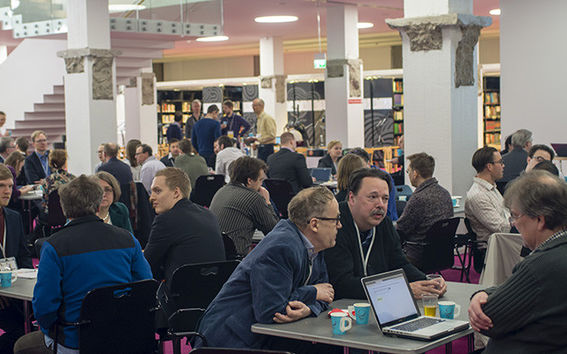Growing use of renewable energy presents challenge for energy storage and markets

The task of curbing climate change has created a need to make changes to the energy system. An increasing proportion of energy is being produced from renewable sources, such as solar and wind power. As an increasingly large proportion of electricity production is coming to depend on weather conditions, the electricity system needs to be made as efficient and flexible as possible so that it can deal with imbalances in supply and demand.
Uneven production of renewable energy increases the need for storage. Doctoral candidate Vilma Virasjoki has studied the market impacts of electricity storage. Storage increases market complexity, which increases the importance of mathematically modelling the operations of the energy system. The understanding that this generates and the optimal use of energy production capacity all help to increase the system’s flexibility and efficiency.
Virasjoki has also analysed the status of combined heat and electricity producers in the electricity market. Her analysis indicates that combined production, otherwise known as cogeneration, can strengthen producers’ market position. In cogeneration systems, heat that would otherwise go to waste is put to good use. Cogeneration balances out seasonal variations in electricity demand and enables the use of renewable energy on a large-scale as efficiently and reliably as possible.
Cogeneration as part of the low carbon energy system of the future has been researched at Aalto University in projects such as the STEEM project (Sustainable Transitions of European Energy Markets), which was completed last year, tells professor Sanna Syri.
“The project developed new models and methods for analysing energy markets. National energy policy measures have a significant impact also on the markets of neighbouring countries. For this reason, the national policy of different countries should take more account of developments in neighbouring countries”, Syri says. “At Aalto, much research is being carried out on how our future energy storage requirements could be reduced and on what effects widescale energy storage would have on market development.”
Storage evens out uneven renewable energy production
Professor Peter Lund has researched the imbalances of supply and demand created by increased use of renewable energy sources such as solar cells. In a study recently published in the Journal of Energy Storage, he has analysed the significance of energy storage for correcting these imbalances. The research indicates that even a small amount of energy storage can benefit the solar power production system.
“We observed that up to 2 kWh of storage capacity per kilowatt of solar power production capacity is sufficient for optimally compensating for daily imbalances between production and consumption’, Peter Lund reports. ‘With this storage capacity, the solar power system could reach an annual self-sufficiency level of 60–70% in northern climate and 80–90% in southern climate.”
At the breakfast event on reducing the need for energy storage, to be held on 31 May, attendees will talk about the growth of renewable energy and how the growing need for energy storage could be reduced. The event will also include consideration of how widescale energy storage affects market development. The seminar is the final part of the Energy Storage Futures series of events, and it will be held in English. Please join us to hear about and discuss what is taking place at the forefront of research in this field.
V. Virasjoki, A. S. Siddiqui, B. Zakeri, A. Salo: Market Power with Combined Heat and Power Production in the Nordic Energy System, IEEE Transactions on Power Systems, Volume 33, Issue 3, 2018, https://doi.org/10.1109/TPWRS.2018.2811959
P.D. Lund: Capacity matching of storage to PV in a global frame with different loads profiles, Journal of Energy Storage, Volume 18, 2018, https://doi.org/10.1016/j.est.2018.04.030
Further information:
Sanna Syri
Professor, School of Engineering
sanna.syri@aalto.fi
tel. +358 50 599 3022
Kati Miettunen
Project Manager, Aalto Energy Platform
kati.miettunen@aalto.fi
Anne Kosola
Manager, Corporate Relations
tel. +358 50 596 9395
anne.kosola@aalto.fi
Read more news

Significant donation to boost pavement engineering research and education
Companies and associations in the field have donated €400,000 to the School of Engineering.
Design strengthens industrial competitiveness – human-centered factory work at the core
Factory work is undergoing a transformation: new technologies and artificial intelligence are changing the content and roles of work. Aalto University’s Department of Design is studying this change from a human-centered perspective in the HiFive project.
Learning to slow down: cold-water swimming benefits explored in new study
Swimming in cold water offers a temporal slowdown, promoting stress management and mental clarity that lingers long after the experience, says research from Finland.






